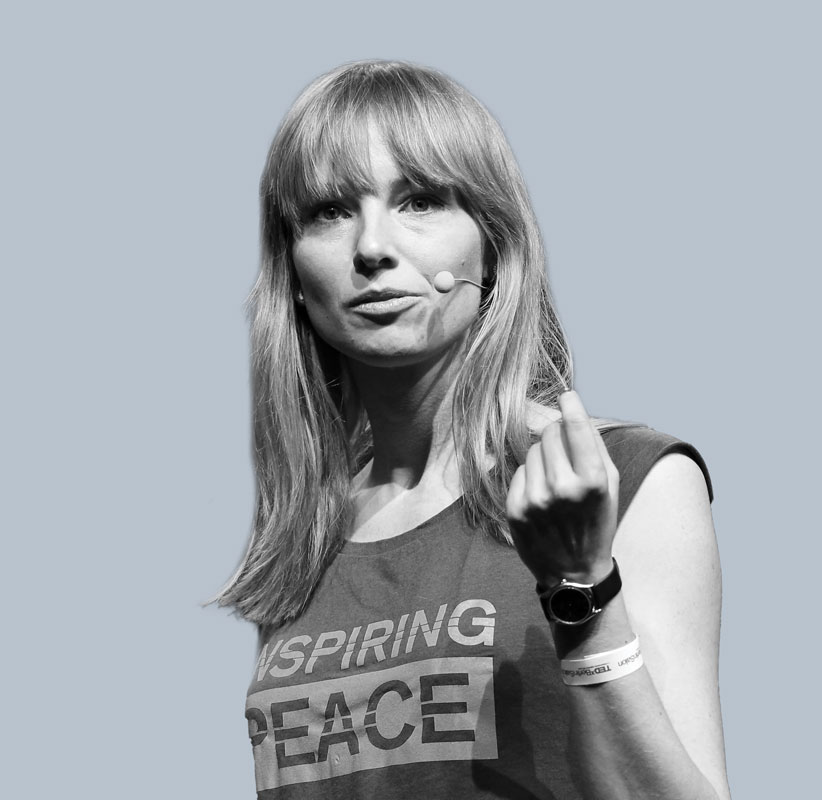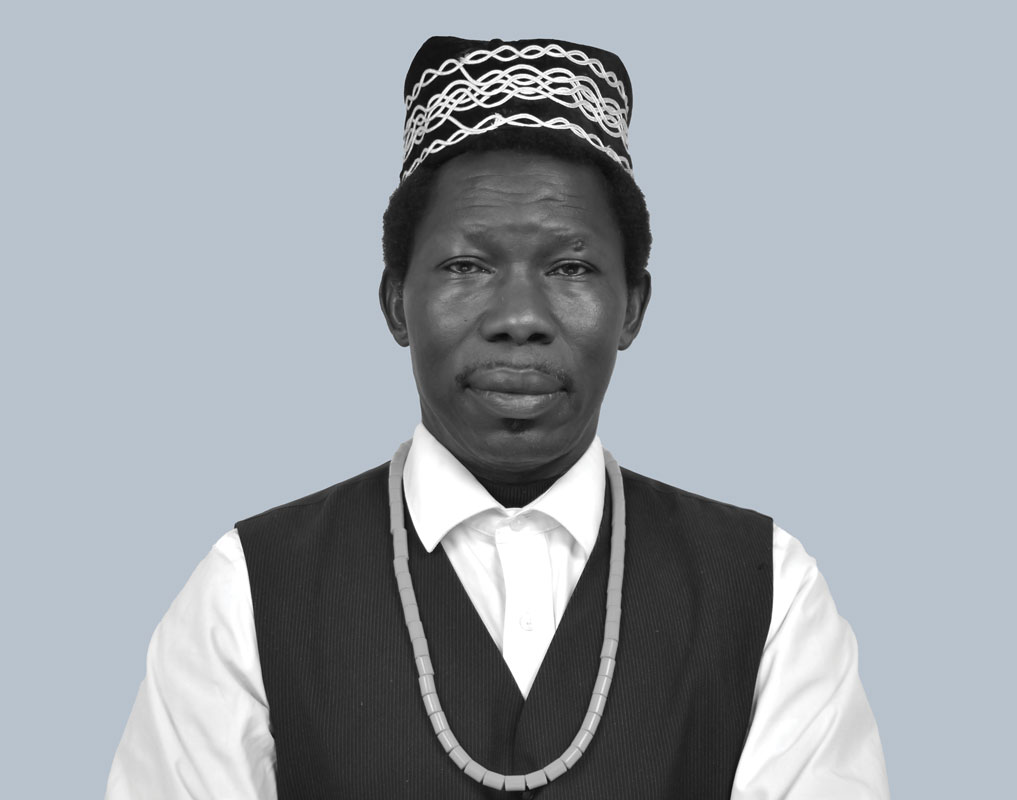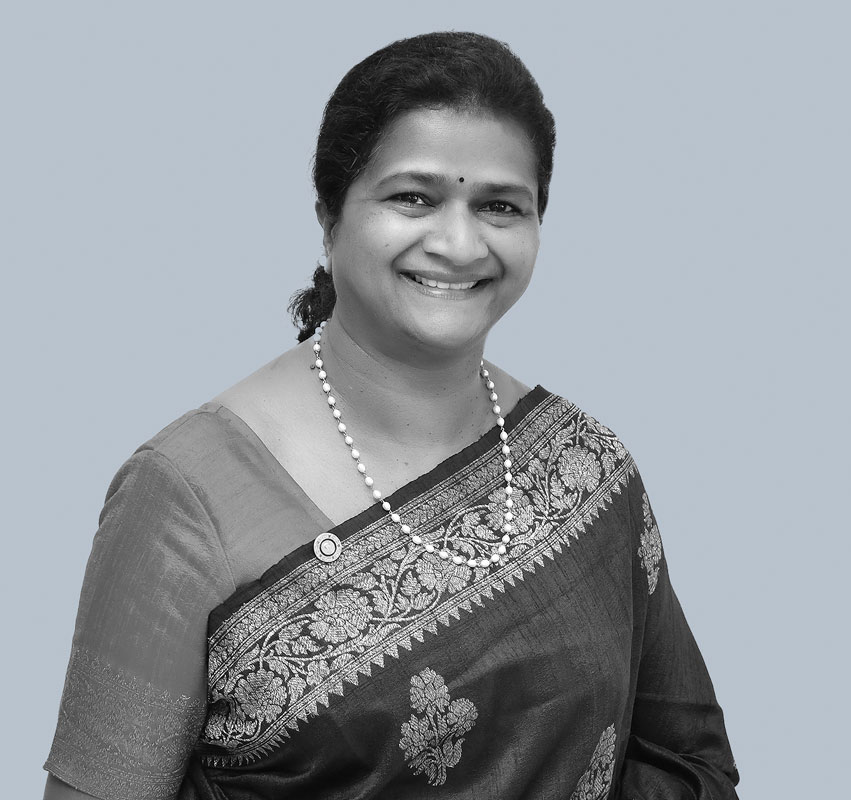Rotary recognised six members and alumni as People of Action: Champions of Peace in January. This honour celebrates the recipients’ work to build peace around the world. Their ambitious and wide-ranging efforts include teaching technical skills to refugee children and promoting sustainable agriculture. The honorees exemplify Rotary’s values and the dedication it takes to make a lasting impact. Their projects empower farmers and refugees, heal postwar trauma, and establish dialogue among diverse groups.
Rotary Club of Wai in Maharashtra
Area of action: Supporting farmers through regenerative agricultural practices
Swati Herkal is a past district governor and past chair of the Governor’s Council of Rotary News Trust. She is also a member of The Rotary Foundation Cadre of Technical Advisers. An active philanthropist, she has served other organisations in various capacities.
Swati initiated a project to address economic instability and social challenges in rural farming communities. These communities face increasing poverty, unemployment, migration and poor soil conditions. All those challenges taken together contribute to social unrest and exacerbate inequality. Swati’s initiative encourages farmers to use composting and other sustainable agricultural practices to increase productivity.
In the project’s first phase, 70 participating farmers reported reduced costs, increased crop yields, and improved soil fertility. They also joined a Rotary Community Corps and served as mentors for more than 1,200 other farmers who were eager to adopt innovative methods. Women in these communities produced and sold compost, gaining a degree of financial independence. By demonstrating the success of regenerative farming, the project also offered a more promising career path for young people who might otherwise have left agriculture. The initiative is now being expanded to 50 additional villages.
Rotary Peace Fellow

Area of action: Preparing refugee children for the digital world
Anne Kjær Bathel is a Rotary Peace Fellow, former Rotary Youth Exchange student, social entrepreneur, mentor, and founder of the ReDI School of Digital Integration.
Anne helped develop and execute the concept for ReDI Digital Kids, which offers technical education to refugee children in Germany. The programme fosters children’s curiosity and creativity and encourages them to communicate and interact in group settings. It also builds digital literacy, empowering participants to navigate the online world safely and confidently.
The initial stage of the project involved 296 children and 78 teachers. Continued engagement with the community has been a key aspect of the programme’s sustainability. Thanks to funding from corporate and government partners, it has now worked with more than 4,000 refugee and migrant children across Germany.
Anne built strong partnerships with Rotary clubs in the community and abroad and secured critical long-term funding. Her background in peacebuilding and innovation allowed her and her team to create a programme that has long-term social and economic benefits for the participants and their families.
Rotary Peace Fellow

Area of action: Integrating peacebuilding into Colombia’s Nationally Determined Contributions
María Cristina Cifuentes, a Rotary Peace Fellow, member of the Rotary Action Group for Peace, and global climate justice ambassador, leads a pioneering project to integrate a peacebuilding approach into Colombia’s Nationally Determined Contributions (NDC). The NDC is a climate action plan submitted to the UN. This marks the first time Colombia’s NDC has incorporated peace as a critical element for sustainability and resilience against climate change.
The project establishes five pillars for Colombia’s NDC: governance and transparency, social empowerment and human rights, sustainable development and Positive Peace, human security and climate resilience, and innovation and capacity building. It focuses on communities that are vulnerable and have historically been excluded from decision-making processes, including children, indigenous peoples and rural populations.
While studying for a master’s degree as a Rotary Peace Fellow, Maria designed a framework to foster peace in fragile contexts. She proposed this methodology to Colombia’s Ministry of Environment, aligning it with climate goals. The framework was integrated into the NDC 3.0 update for 2025–30. It incorporates ethical transition principles and the United Nations’ Sustainable Development Goals as well as a commitment to human rights, gender policies, and child-sensitive indicators. This innovative approach highlights the role of peace and social justice in driving transformative climate action.
Rotary Peace Fellow

Area of action: Preparing women for work
Domino Frank is a Rotary Peace Fellow with more than 20 years of experience in humanitarian development and peacebuilding. He is a strategic advocate and project coordinator for the Corridors of Peace programme in Guéréda, Chad. He focuses on helping displaced women and young people in conflict zones, offering vital services such as vocational training, education and healthcare.
In a region destabilised by conflict and displacement, many women and young girls lack educational and economic opportunities. As a result, they may get trapped in cycles of poverty and dependency. The lack of opportunity fuels deeper social and economic divides, exacerbating tensions within the community and contributing to instability.
Corridors of Peace offers training in literacy as well as sewing, agriculture, soapmaking, and other skills that are both marketable and sustainable. By learning these trades, women and girls can generate income, improve their living conditions, and achieve financial independence. The programme builds peace by addressing the root causes of conflict: poverty, inequality and disenfranchisement.
Rotary Peace Fellow RC Global Partners in Peace North Carolina

Area of action: Starting dialogues on challenging issues
Linda Low is a Rotary Peace Fellow and charter president of RC Global Partners in Peace, which has members all over the world. Based in Seattle, Washington, Linda developed a process to facilitate dialogue among diverse groups to reduce divisiveness and polarisation. The programme, called Leadership Dialogues, was conceived in 2016 and is now used in communities across the US and around the world.
Leadership Dialogues brings people together to discuss difficult issues and leaves participants with a clearer understanding of others’ points of view. By emphasising shared values, thoughtful listening, and empathy, Leadership Dialogues encourages people to engage in productive discussion and appreciate different opinions and experiences. As a result, communities become stronger and more collaborative. Linda has personally facilitated dialogues with at least 2,000 people, around half of them Rotary members. She has also helped many Rotarians in the US learn to facilitate dialogues, and some Rotary districts have integrated Leadership Dialogues into their awareness campaigns and community engagement initiatives. Most participants surveyed have said the experience changed how they engage in dialogue.
Rotary E-Club of Global Impact, RID 1990

Area of action: Building resilience, trust and connection
As a child, Sanela Music was a refugee who fled the 1992–95 war in Bosnia-Herzegovina. Today, she’s an international human resources consultant, a Rotary representative to the United Nations in Geneva, and a dedicated peacebuilder working with TRF and the SANCHILD Foundation.
Sanela leads the Harmony Project, which addresses postwar trauma by equipping communities to hold dialogues that promote healing and build lasting peace. Launched in 2021, it has carried out 47 initiatives that have benefited more than a thousand individuals and indirectly impacted nearly 50,000 people in 34 cities.
The Harmony Project in Schools empowers teachers and students to manage their emotions and build resilience and trust. Approved by two ministries of education in Bosnia-Herzegovina, the project reduces conflicts, stigmas and cultural divides. It also enhances inter-ethnic connections. Participants report experiencing transformative changes in their relationships and an overall improvement in their well-being.
Inspired by the project’s outcomes, Sanela is working with peace education experts and Rotary partners to expand it across the Balkans and beyond.
©Rotary.org






